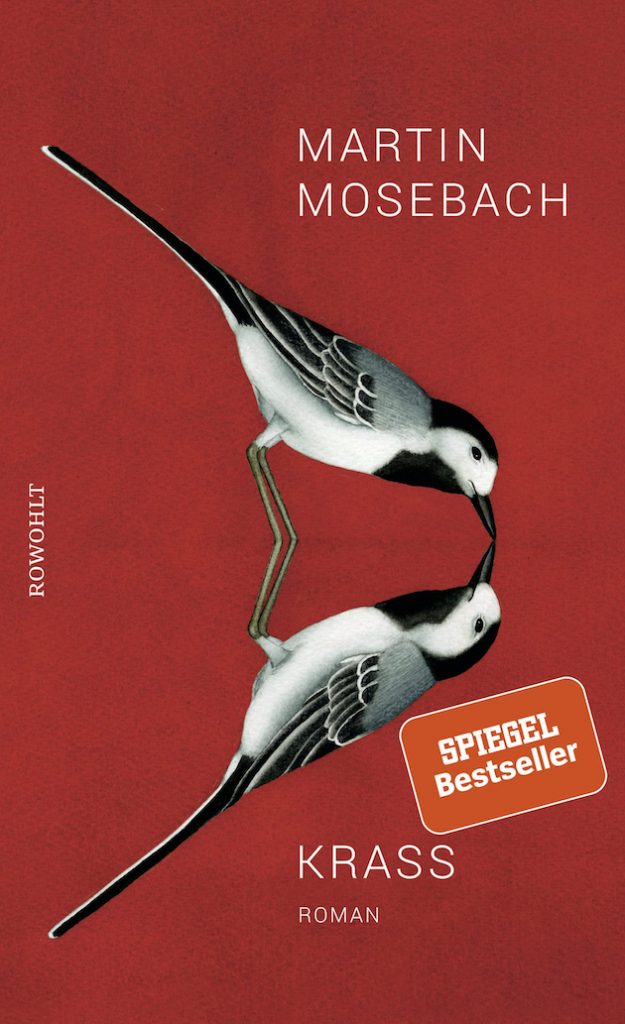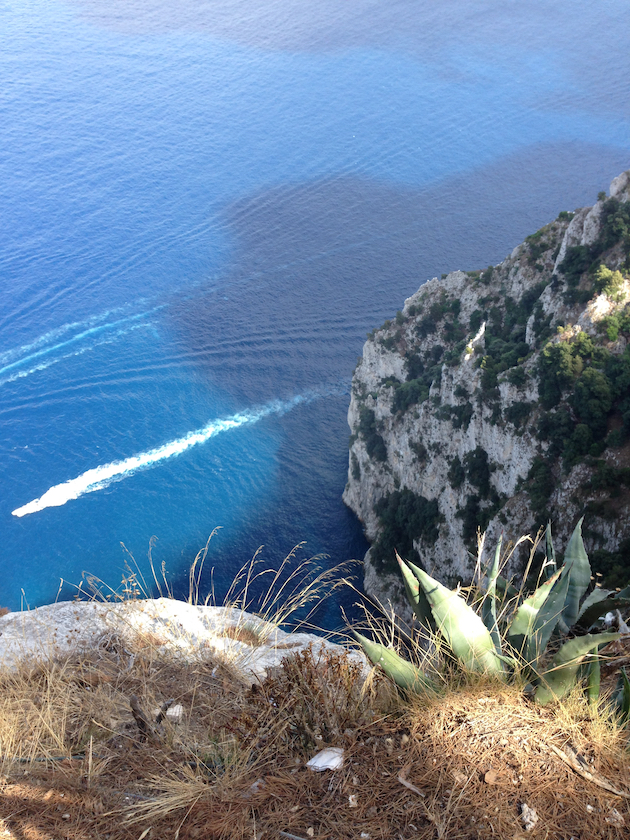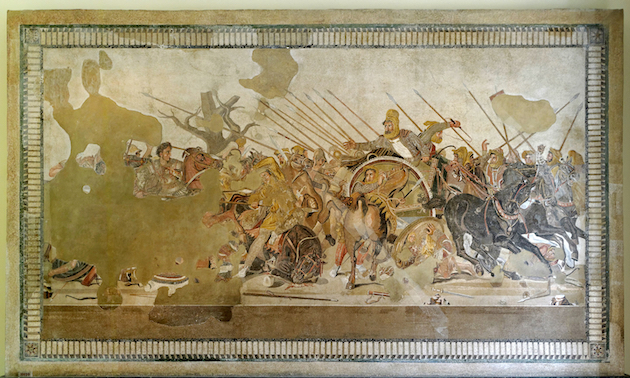
Krass
By Martin Mosebach
(Rowohlt Verlag, Hamburg, 2021)
(525 pages)
Krass, Mosebach’s latest novel, is more tightly focused than the “epic” Westend written some thirty years earlier. It is divided into three sections, each with its own style and coloration, much like the movements of a grand musical composition. Their titles reflect that: Allegro Imbarazzante, Andante Pensieroso and Marcia Funebre. The action of the novel is concentrated at three specific points of time – even if the first and last “acts” are separated by two decades.
However, while Westend is restricted to Mosebach’s native German world, Krass roams much further afield – sweeping from Naples to the French countryside to Cairo. Krass has similarities to Mosebach’s more recent novels. For example, in Krass we find a wonderfully detailed description of a third world culture (Egypt). Mosebach has done the same for Morocco (Mogador), India (Das Beben) and, again, Egypt (Was davor geschah and the non-fiction The 21). This allows Mosebach to make all kinds of contrasts between the world of Europe today and the more permanent (and in a certain sense more spiritual) life of these traditional cultures. Dr. Jüngel, one of the leading personages of Krass, also recalls a certain kind of grasping, manipulative yet ineffectual modern personality encountered elsewhere in Mosebach’s work – such as the German “anti-hero” of Mogador.
The novel commences (Allegro Imbarazzante) in late 1988 beginning, most appropriately, with a magic show in Naples. We are introduced to Ralph Krass, an intimidating German businessman, wheeler-dealer and “macher” whose personality differs in every respect from Eduard Has, the protagonist of Westend. Krass is domineering, imperious, controlling and decisive. He surrounds himself with an entourage of mainly middle aged and older individuals who he has reduced to total dependance. We also meet the second major character of the novel, a younger man, the aforementioned Dr. Jüngel. An art historian, he has made a “pact with the devil,” becoming Krass’s famulus and facilitator. His letters to his feminist wife chronicle much of the doings of the Krass’s coterie.
It’s an indulgent, carefree life, with Krass providing his retainers lavish food and drink as well as tours, shows and boating excursions in and around Naples. With Jüngel’s assistance, Krass is pursuing the purchase of a villa on Capri – the legendary island of hedonism. He also bent on attaching to his entourage a young Belgian woman, the unfaithful Lidewine, as a kind of mistress. For sex is also a part of the entertainment of Krass and company.

Yet amid the luxury and lavish amusements, some of the characters have disturbing premonitions. Jüngel lectures on the Alexander mosaic in the Naples Archeological Museum and, in particular, on one detail: an image of death. Krass himself, while swimming off Capri, is stung by a jellyfish and is nearly swept away by the current. His intended new villa is a mysterious ruin. And we gather that his business (arms trafficking?) rests on shaky and perhaps illegal foundations. So, the uninhibited lifestyle of Krass – and of Europe today – carries within it the seeds of its own destruction. Et in Arcadia ego! We view the beginning of this unraveling already in the last pages of this section.

Andante Pensieroso takes place in a remote corner of Central France late in the following year. Jüngel has taken refuge in the house of a friend after his world has collapsed. He has been expelled from Krass’s circle, his wife (whom he had left behind to join Krass), has deserted him and he has lost his job in Germany. He is flat broke and for want of a functioning CD player cannot even distract himself with (classical) music. He faces an emotional breakdown and, seeking a way out, desperately tries to contact Krass. It’s a traumatic fall from his previous fantastic, extravagant existence under the direction of Krass.
Yet in his isolation from the stimuli of the modernity, Jüngel is now open to a whole new world of reality. He perceives more directly the nature that surrounds him. That includes, in a very Mosebachian touch, meaningful encounters with two parakeets, a cat and a white wagtail (an Old-World bird). He visits a functioning monastery, ancient but rebuilt in the 19th century, in which the Latin plainchant is still sung:
The compulsory musical abstinence made me receptive to the severity and sobriety of this chant, for its renunciation of polyphony, atmospheric magic and 3/4 and 4/4 time. One can’t dance around to this music or march to it. Singing here was a higher form of speaking. The objective appeared to be the purification of the senses from confused emotions. That fit well with the chill of this church that made me shiver after a while – although I didn’t think of returning to the warm air outside. The half-light in the hall faded away; the two candles that were lit for the singing of the chant still shone as golden dots until a monk returned and extinguished them. Now it was night. (p. 238)
He is befriended by a cobbler, Desfosses, living in a room adjacent to that monastery. Desfosses, like Jüngel, is a refugee from the vicissitudes of modern life – if for other reasons. He is an upholder of older habits and customs, a practicing Catholic and happens to be a devoted fan of Marshal Petain. This man teaches Jüngel the lesson that not one shoe or tool should be thrown away – everything can be repaired and reused. In travels over the countryside the earthy Desfosses shares with the impecunious Jüngel hearty meals (Lievre a la Royale) and potent drinks.
Jüngel eventually succeeds to getting a call through to Krass who challenges him to go off on his own. A chance remark by Desfosses gives Jüngel an insight into the interrelationship of all things and events. These incidents, along with the “education” he has received in his exile, enable Jüngel to break free from both his dependance on Krass and his grief at his broken marriage. After this “resurrection” (as he calls it) Jüngel can face life again.
The scene of the novel’s final act, Marcia Funebre, is Egypt. It’s 2008 – 20 years later. We meet again Krass, but the supremely self-assured “master of the universe” of the past is gone; instead, he is a man desperately attempting to re-establish contact with his former friends in the government to order to stave off disaster. As the novel progresses, Krass is stripped of everything: his business, his money, his hotel room and, confined to a hospital bed, even the control over his own body and finally his very life. The account of his lingering decline is a fearful narrative. Krass’s only consolation is the devoted friendship of an Egyptian lawyer who strangely comes to consider him his “father.” The unselfish Mohammed, like Desfosses a sympathetic if flawed individual, is Krass’s only support in his last days.
Jüngel and Lidewine also have ended up in Cairo – for different reasons. Jüngel’s “resurrection” in France has unfortunately failed to bear lasting fruit. He has become a professor of “urban studies” at one of the most undistinguished of German universities. He is in the Middle East on a grant and is on the hunt for another. He has lived through two further divorces. Lidewine has taken up the art business of her parents. In Cairo she is pushing the work of a fraudulent local artist – and otherwise continues her promiscuous ways. Jüngel and Lidewine thus remain emblematic representatives of decadent Europe today.
After learning of Krass’s presence the pair set out to find him. Too late – his body has been taken away for burial! In an oppressive and disturbing scene Jüngel and Lidewine roam in the gathering dusk the endless “city of the dead” of Cairo, searching for his grave. But the body of Krass has disappeared completely among the anonymous myriads buried there – as if he never had existed.
Krass thus contrasts the superficial fantasy world of Western Europe, focused on food, sex, travel and entertainment – and, for some people, social climbing by linking up with those holding economic power – with the permanent values of the surviving remnants of Christian culture in provincial France and of the unchanging world of Moslem Egypt. And above all, with the final reality: death.
Strewn about this novel is the wreckage of Western civilization. Krass’s villa, appropriately named Faraone, is a decayed ruin – just crumbling “stage scenery.” The abbey in which Desfosses resides is, in large part, a not very successful mid–nineteenth century restoration – the original nave had been destroyed in the French Revolution. And a grandiose but dilapidated Cairo apartment to which Mohammed takes Krass is the haunted, empty relic of a half-Western, half-Oriental past. Mosebach enjoys depicting the decrepitude of structures that once were modern. For, as he writes, contrasting the quality of the abbey’s surviving medieval choir with that of the nineteenth century nave:
Ancient things cannot become old fashioned, that which is ancient has learned to wait. Before it, the fashionable continually passes away, even though it is the expression of life. As if only that which has thoroughly died can pass the real test of permanence. (p. 237)
Am I reading Krass in an excessively allegorical manner? Perhaps! In America – after Poe, Hawthorne, Melville and their successors – this perspective is second nature to us. And after all, Krass is not a treatise but a novel with colorful scenes, memorable characters and a fascinating narrative. Yet it seems to me that Mosebach is indeed showing to Europe – and the entire Western world – a great warning sign. He is holding up a mirror so that we in the West can gaze on our own terrible reflection. And is that not, returning to the start of these reviews, also a task of a Catholic writer?
Related Articles
No user responded in this post